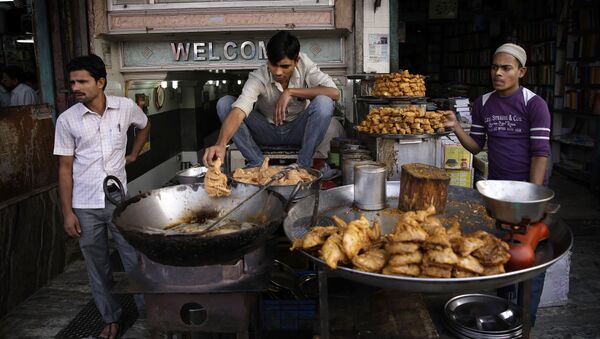When a country's working demographics display a boost in working-age population, this usually brings a positive effect called the "demographic dividend". Basically, this effect means that a large amount of labor force will boost country's industry and economy by itself.
Aakar Patel, a journalist from Indian news outlet Firstpost, challenges this concept and believes that in India, the upcoming peak of working population is likely to bring more problems than benefits.
He cites a report by IndiaSpend, a data-based journalism initiative, that points out that most people — as much as 97 per cent — in India are employed in what is called an "unorganized sector" — jobs without formal monthly payment or social security benefits.
To make things even worse, most people are not employed for the entire year — as much as 60 per cent of people have temporary jobs.
On top of that, rural wages in India are at decade's minimum level, the report says.
But the most important thing is dynamics of labor market, Patel points out, as there are virtually no new jobs. 2015 marked the lowest increase in "organized sector" jobs with a major contraction of agricultural sector, which accounts for almost 50% of jobs in India. New business starts have also cratered process to 2009 levels.
These combined market forces mean that the upcoming wave of potential labor force participants will not be met by a corresponding demand for their services. Instead of an economic boost, India will face dramatic unemployment, and, eventually, social unrest that will be very difficult to cope with.
The low level of education in India doesn't help. Most people in India have no access to education to provide the skills necessary for even so-called "blue collar" jobs. Thus, even creation of demand for labor force won't be enough, as the labor market won't be able to provide workers with the skills required.
This is a complex problem that requires government's attention, Patel says. He notes that Prime Minister Modi has already addressed the issue with his "Skill India" initiative which aims to provide basic "blue collar" skills to millions of people. But that will take time, because the quality of education in India is poor (no surprise, considering all the above).
Unless the Modi government comes up with some revolutionary and decisive plan, India is likely to face a social catastrophe instead of "demographic dividend", Patel concludes.




